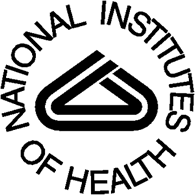News Release: Research, School of Medicine
Oct. 10, 2008
NIH Awards EUREKA Grant to Emory Biochemists for Innovative Research in Glycomics

The National Institutes of Health (NIH) has awarded Emory University biochemists David F. Smith, PhD, and Richard D. Cummings, PhD, a grant of $1.2 million over four years as part of the NIH EUREKA program (for Exceptional, Unconventional Research Enabling Knowledge Acceleration). Together Smith and Cummings direct the Glycomics Center in the Department of Biochemistry in Emory University School of Medicine.
Smith and Cummings are part of a group of 38 scientists in the United States to receive the EUREKA grants for exceptionally innovative projects that could have "an extraordinarily significant impact" on many areas of science. The grants will help investigators test novel, often unconventional hypotheses or tackle major methodological or technical challenges.
"EUREKA projects promise remarkable outcomes that could revolutionize science," says NIH Director Elias A. Zerhouni, MD. "The program reflects NIH's commitment to supporting potentially transformative research, even if it carries a greater than usual degree of scientific risk."
The Emory research program is titled "Shotgun Glycomics: Linking Glycan Structure and Function."
The human glycome is the entire complement of the thousands of complex carbohydrates or glycans in the human body that are made of many individual sugar molecules and occur in glycoproteins, glycolipids, and other glycoconjugates.
Glycans on the surfaces of human cells are bound by a huge assortment of carbohydrate binding proteins and are also bound by pathogens, including viruses and bacteria. Although the vast numbers of these interactions with the human glycome are important in virtually all aspects of human biology and disease, they are not well understood.
"A major focus of modern biomedical sciences is to understand the roles of complex carbohydrates in biological processes," says Smith. "Defining all of the glycan structures of the human glycome is somewhat analogous to sequencing the human genome. However, genomic DNA can be sequenced and synthesized by automated methods, while the human glycome is more complex in size and structure and no automated procedures exist for its sequencing or synthesis. The complexities of the human glycome make a 'brute-force' approach impractical."
Smith and Cummings have devised an innovative approach that should greatly facilitate the task of both defining the glycome and the functional interactions of complex carbohydrates with other molecules. They propose a paradigm-shifting strategy, which is a combination of what they have termed "shotgun glycomics".
In this novel approach, thousands of complex carbohydrates, which are purified from cells and tissues and stored as glycan libraries, are attached to glass slides to create microarrays. The microarrays, which contain micron-sized spots of purified glycans, are then probed with fluorescent-labeled proteins that detect specific glycan protein interactions.
Once the structures of the recognized glycans are defined, the molecular interactions and functions of the glycans and the proteins that bind them can be further explored in a biological context. These studies will lead to novel biological insights into the structures and functions of the human glycome.
"This work will have enormous impact in defining the roles of complex carbohydrates in human biology and diseases, such as inflammation, immunity, cancer and infection, and should lead to the development of new diagnostics and therapies," Smith says.
###
The Robert W. Woodruff Health Sciences Center of Emory University is an academic health science and service center focused on missions of teaching, research, health care and public service. Its components include schools of medicine, nursing, and public health; Yerkes National Primate Research Center; the Emory Winship Cancer Institute; and Emory Healthcare, the largest, most comprehensive health system in Georgia. The Woodruff Health Sciences Center has a $2.3 billion budget, 17,000 employees, 2,300 full-time and 1,900 affiliated faculty, 4,300 students and trainees, and a $4.9 billion economic impact on metro Atlanta.
Learn more about Emory’s health sciences:
Blog: http://emoryhealthblog.com
Twitter: @emoryhealthsci
Web: http://emoryhealthsciences.org
